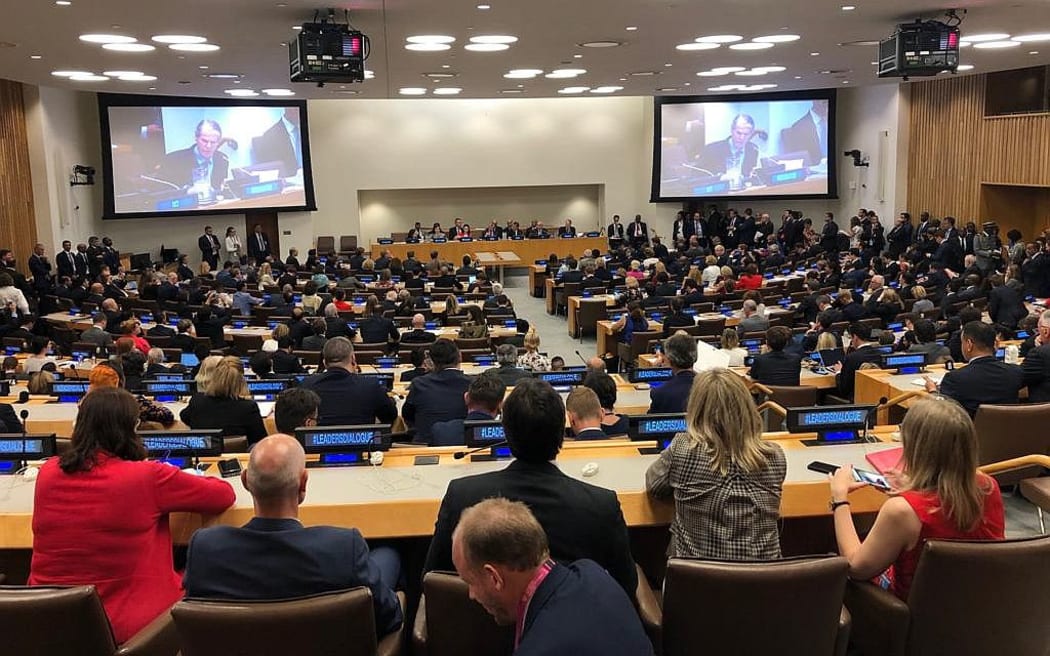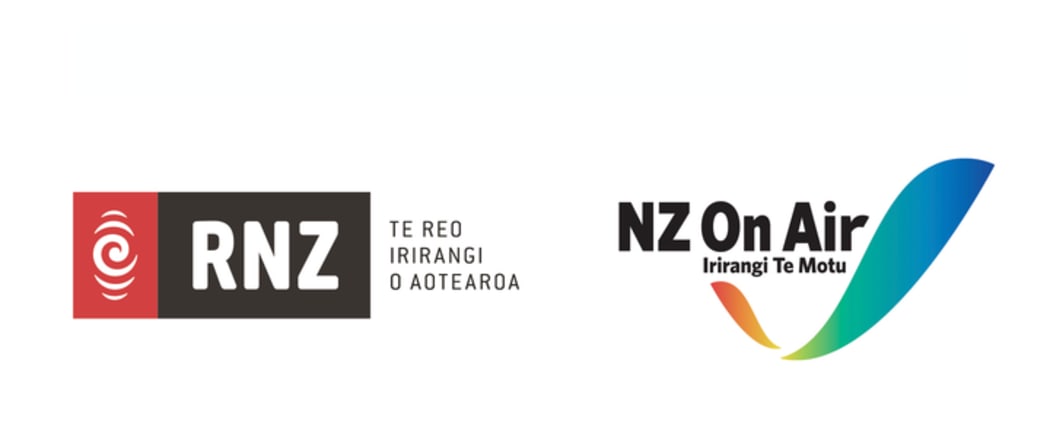
The Christchurch Call meeting at the UN in New York. Photo: RNZ / Craig McCulloch
It was a big promise on a global stage but two years on, the effectiveness and transparency of the Christchurch Call is being called into question.
In the aftermath of the March 15 terror attacks, Prime Minister Jacinda Ardern and French President Emmanuel Macron joined forces to tackle the use of tech platforms to distribute and find extremist violent content.
The Christchurch Call was born. For the first time, a commitment not only between countries but also global tech giants.
To date, 55 countries, 10 tech companies and two international organisations are signed up. Over the weekend all of them met virtually to talk about next steps.
Today The Detail's Jessie Chiang speaks to Newsroom's political editor Jo Moir who was in Paris in 2019 when the pledge was first launched.
"There was a lot of optimism about what could be achieved ... we'd never seen anything like that before, it was quite impressive," she says.
But just last month a community consultation document with governments, tech companies and community groups such as the Islamic Women's Council of New Zealand found that 38 percent of them thought the effectiveness of the call was average.
Moir explains also that transparency has been a big problem, especially given that journalists were locked out of the summit over the weekend and were allocated limited questions – all New Zealand journalists were allowed just two between them.
"The obvious question you want to ask is, 'what happened?', but if you use a question [to do that], then you've only got one question left to dig into why that happened or didn't happen," she says.
In spite of that there are examples of real change because of the Christchurch Call. Moir talks about newly introduced crisis protocols for tech companies that have been used twice in the last two years.
She explains the role of the Global Internet Forum and its work in responding to extremist violent content online.
The United States also finally joined the global effort after refusing to under the Trump administration.
But what change they'll bring and how committed they are remains to be seen, especially since Secretary of State Antony Blinken was at the summit instead of President Joe Biden.
So how would Moir rate the progress of the Christchurch Call?
"A lot of it is happening in the background, it's not necessarily something that you can see or is particularly tangible... I would say that it doesn't have that momentum and drive and pick up that was going on when we went to Paris but I don't think that means that nothing is happening," she says.


